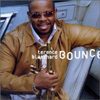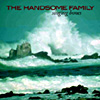
Avishai Cohen

Lyla (RAZDAZ Records)
Lyla, the debut release of bassist/pianist Avishai Cohen's new label, RAZDAZ Records, suggests less a unified recording than a future RAZDAZ sampler. Widely known for his monster bass work with Chick Corea's Origin, Cohen can masterfully hold down the bottom; moreover, he can lead on bass, piano, and Fender Rhodes as he demonstrates on this release.
Herein is an apparently comprehensive representation of Cohen's hyperopic oeuvre, including but not limited to drum-and-bass numbers, pop ballads, a Lennon/McCartney jazz cover, a solo piano piece, and a bass/piano duet, all of which feature members of his fusionesque International Vamp Band, his rock group Gadu, and/or Chick Corea on piano. As a consequence, solo acoustic piano abuts Dr. Dre electronica followed by arco bass "groovin' up slowly" adjacent to a war protest, etc.
Which isn't to gainsay the remarkable cuts, most notably the title track (meaning "night" in Hebrew), a Cohen original and the clear album highlight. A slow waltz whose head comprises a series of simple descending bass figures followed by a lilting bridge, "Lyla" further entrances with sensitive turns contributed by Cohen on Fender Rhodes, Diego Urcola on flugelhorn, and Yagil Baras on bass.
Other Cohen compositions, "Ascension" and "The Evolving Etude," also display Cohen and Co. to good effect; however, the same cannot be said of the sluggish cover of "Come Together" or the Well-Tempered-Clavier-meets-George-Winston maunderings that Cohen's solo piano presents on "Structure in Motion." The overall result is mixed, evidence of a prodigious talent in search of an ultimate focus.
—Jonathan B. Frey
Terence Blanchard

Bounce (Blue Note)
Now in his early 40s, trumpeter Terence Blanchard can perhaps best be described as having come into his majority. He's got an established reputation for uniquely expressive performance both live and on CD, veteran experience in any number of settings but most notably with Art Blakey, numerous film credits, Grammy nominations, an academic posting at USC, etc., and now this debut recording on Blue Note.
Bounce proceeds from this implied promise with immediate poise: the first cut, "On the Verge," a nine-minute Blanchard tour de force with a driving head propelled by Eric Harland (drums) and providing Aaron Parks (piano) and Brice Winston (tenor) ample opportunity to stretch, even before Blanchard joins to let fly. A similar exuberance manifests on "Fred Brown" and the African beat-and-chant influenced "Azania," both with prowling comp and soloing by Robert Glasper on Hammond B-3. None of which can upstage for overall hipness "Footprints," a funky cover of the Wayne Shorter original. Interwoven among the more energetic offerings herein are several ballads, most notably Brazilian composer Ivan Lins' "Nocturna," a vehicle for Blanchard and guitarist Lionel Loueke.
Notwithstanding the over-indulgent reverb applied to his horn throughout this recording, Blanchard displays characteristic brilliance, at turns blusteringly expansive and thoughtfully sensitive. In sum, Bounce foretells a School of Blanchard in utero.
—Jonathan B. Frey
The Handsome Family

singing bones (Carrot Top)
I'm a sucker for doom-and-gloom music. It's not that thinking (or singing) about death and nothingness makes me happy. But it makes me feel less alone, as though I could share death and nothingness with someone, with everyone.
This is perhaps why I'm drawn to old-time folk music, the murder ballads and suicide elegies and end-of-the-world gospel that seems to cut to the mystery of life and death.
But contemporary musicians have trouble doing gloom convincingly. Most of it ends up sounding self-indulgent.
The Handsome Family do doom and gloom as good as any band working.
The group is a husband-and-wife duo, Brett and Rennie Sparks. Rennie writes all the lyrics; Brett writes the music and sings lead vocals. It makes Brett an empathetic interpreter of his wife's strange lyrical nightmares and forebodings.
Although they've spent most of their time in Chicago and Arizona, their music feels like Appalachian gothic.
The songs on singing bones deal mostly with being lost, or losing someone to the abyss.
It might seem like this could become something of a shtick, but Rennie's oddly compelling stories keep the music from collapsing into cliché. They work as metaphors or just weird tales. "The Bottomless Hole" is about a man who had all the essentials in life—"a wife and children" and "good tires"—but grows obsessed with a hole behind his barn that he uses for a dump. One day he climbs down into it but at the end of his rope he's still not at the bottom and cuts himself loose. And as he falls he sings the paradox: "But until I hit the bottom/ I won't believe it's bottomless."
Such is the Sparks' world.
—Joe Tarr

September 11, 2003 * Vol. 13, No. 37
© 2003 Metro Pulse
|